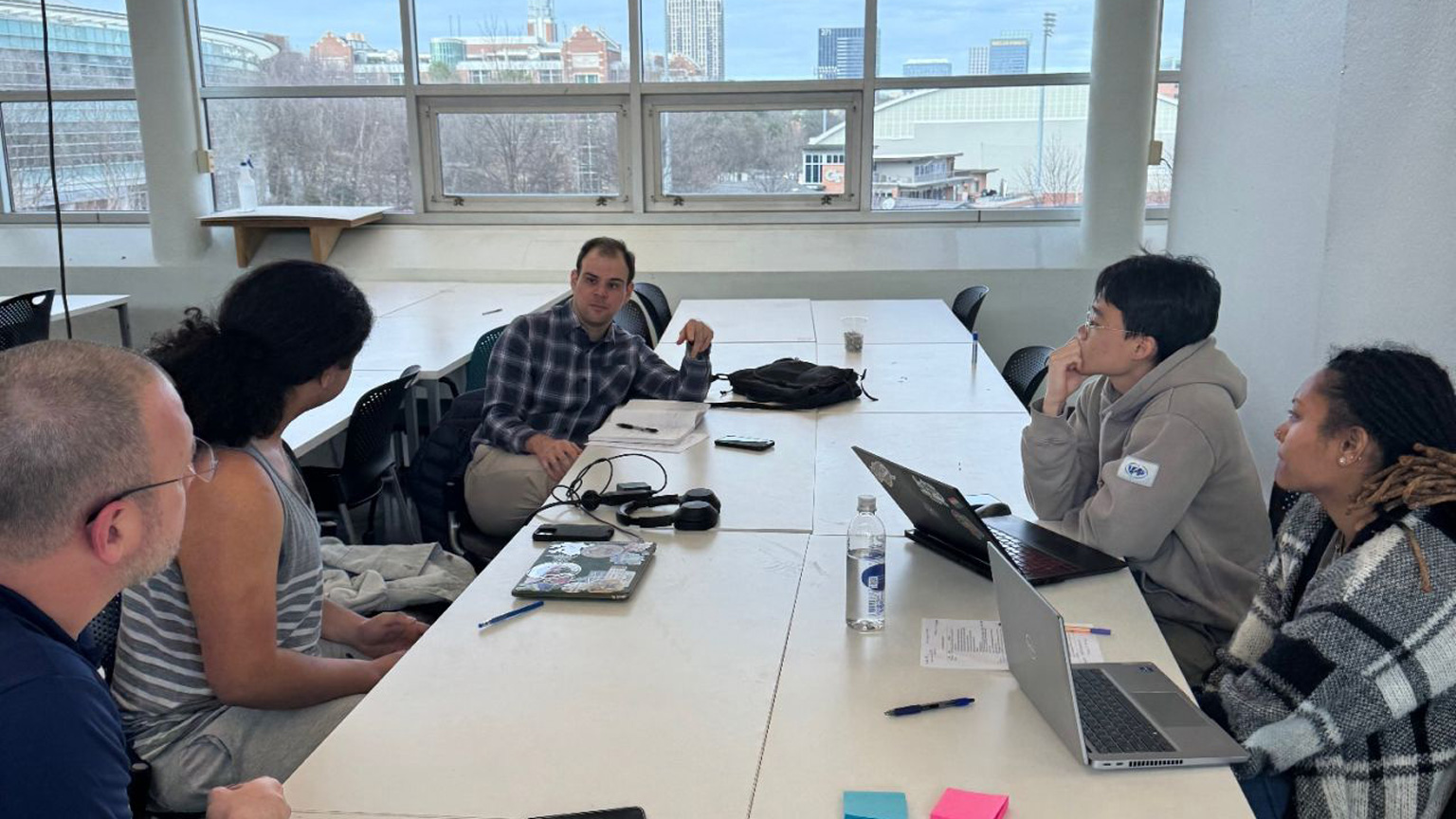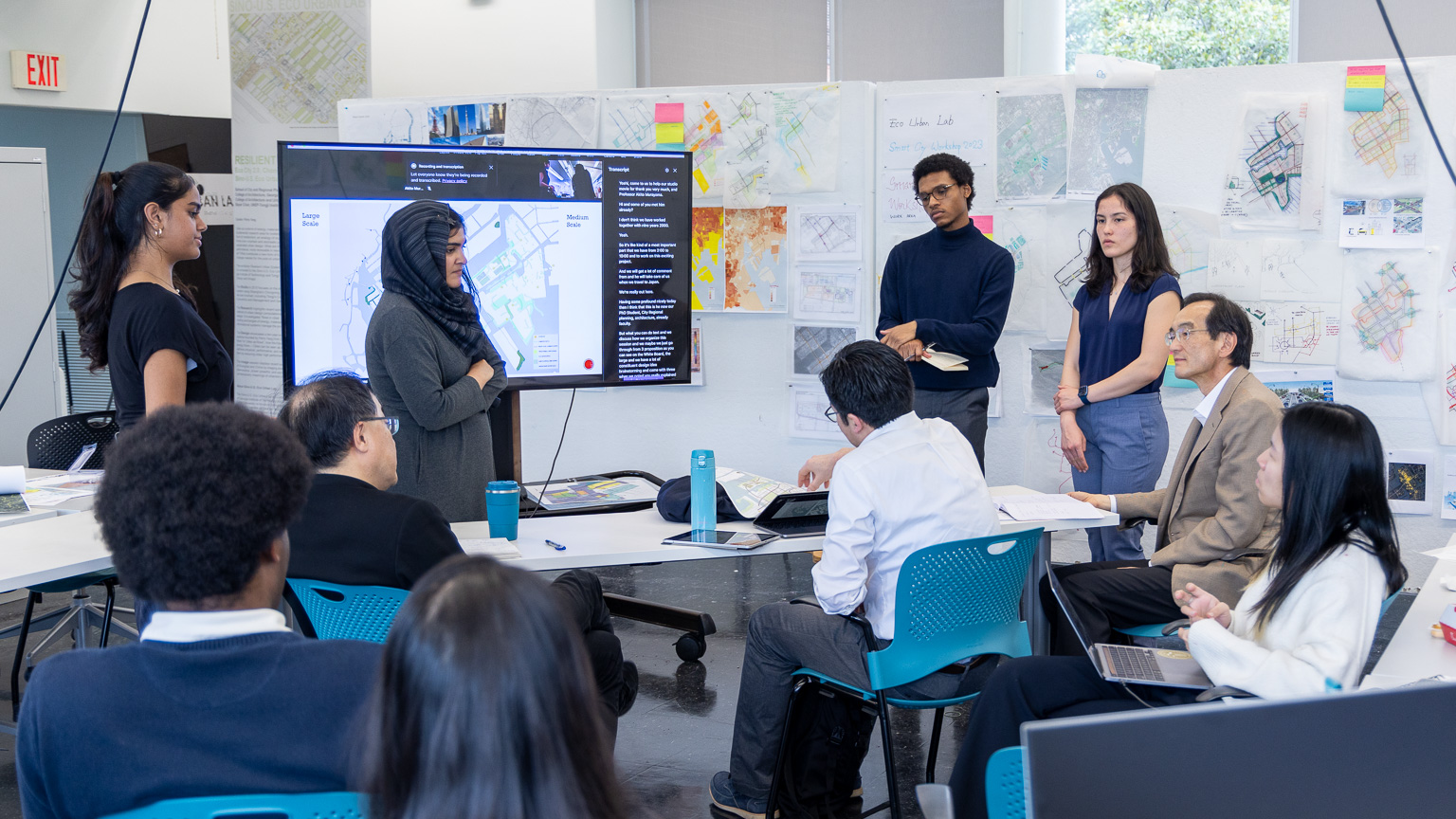Spring Planning Studios Take On the World
Wes McRae | February 19, 2024 – Atlanta, GA
The Spring Planning studios at Georgia Institute of Technology address international urban planning challenges, including disaster reconstruction and smart cities models for climate neutrality.
The studio is a practicum for students in their second year of the Master of City and Regional Planning (MCRP) program. They bring together students with diverse expertise, as they often include students seeking dual degrees, according to Mike Dobbins, who is coordinating the studios this year. Along with the Master of Science in Geographic Information Science & Technology, the most common dual degree with MCRP, studios often include dual-degree students from architecture, civil and environmental engineering, public policy, or law.
Technological knowledge and skills developed in studios carry over directly into internships and jobs. "The studios provide hands-on exposure to real time planning and development activities," Dobbins said. "These include experience with the dynamic factors and transdisciplinary collaborations that interact to produce policies and projects."
Coby Harris, an architecture student in the Tokyo studio, found the practical nature of the studio useful. "It can be fun to do theoretical designs, but you're going to have to go work the job, going to have to practically get projects done," Harris said.
"So in the studio, we're thinking about how you can implement fun ideas, but in a practical manner."
Puerto Spring 2024 Studio

Alberto Fuentes's Spring 2024 Puerto Rico Studio is addressing the post-disaster recovery and reconstruction process through two projects.
"In the first project, we work with our client, the Center for the New Economy (CNE), to assess the distribution of public and private reconstruction resources," Fuentes said. "We use FEMA and Census Bureau datasets, as well as interviews and focus groups, to address the question of how these resources have been distributed given our social vulnerability and disaster damage measures."
"In our second project, we collaborate with community leadership in the neighborhood of Condado, San Juan to both evaluate the area’s electricity service and offer suggestions for possible improvements through institutional, technological and organizational change."
Studio members, both undergraduate and graduate, will travel to Puerto Rico during the 2024 Spring Break to meet with clients, conduct fieldwork and participate in a series of pre-organized educational activities with planners, community organizers, academics and private contractors.
Through the studio work, students hope to help current and future recovery efforts. "Because Hurricane Fiona was so recent, there's not much data to work with," said Geyu Lyu, a planning student in the studio. "We'll be able to collect more data and better visualize the impact through this work."
"As a territory and an island, Puerto Rico has a problem with distribution of aid resources," said Diego Shipmon, who's taking the class as part of the Sustainable Cities minor. "Access to and analysis of data will help create a more resilient Puerto Rico."
Collaboration with stakeholders benefits students and clients, said Lyu. "We're cooperating with a real client who's already done a lot of work in Puerto Rico," Lyu said. "I'll learn a lot from the client because of the work they've already done, and they'll be able to use our report. You can see the impact of our study in their work."
Tokyo Spring 2024 Studio

The students in Perry Yang's studio focus on redevelopment of manmade islands in Tokyo Bay, converting from industrial use to a greener, more residential environment. Because the islands were built to be higher than the surrounding land, students also have to plan for resources to house residents of surrounding parts of the city in case of flooding.
"The Spring 2024 studio links Tech students with partners in the University of Tokyo to explore how data analytics can drive urban design toward smart cities models for carbon neutrality and climate resilience," Yang said.
Students will participate in one-week workshop in Tokyo and will present their urban design projects to public and private sector stakeholders in Japan.
"We want to make the islands more livable, essentially," said Hina Ahmed, a City & Regional Planning Ph.D. student in the studio. "These used to be places where warehouses were, very industrial. Now people are moving in to the bay, and they want to have a good life."
"So we're improving livelihoods in that sense, making the area more livable."
Sanju Rajesh, another student in the studio, sees opportunity to influence future development for the better. "There's a chance there will be more man-made islands as well, so if we improve usability and walkability on these islands, that leads the way for others to also be more comfortable and usable," she said.
Professor Akito Murayama from the University of Tokyo and Yoshi Koshiyama, Executive Vice President and Design Director of Kajima, a design construction corporation in Japan, visited the studio February 16th and reviewed the student work.

